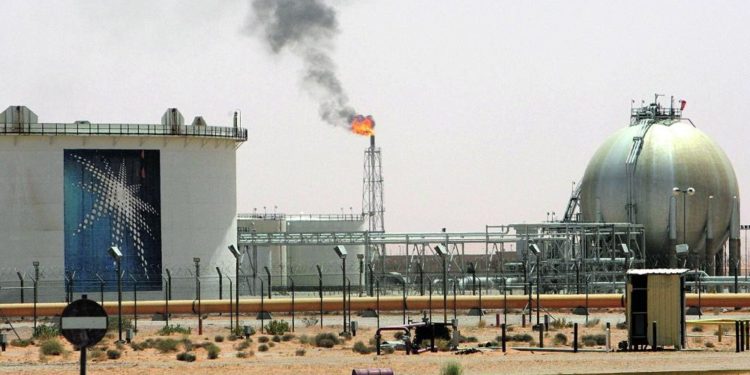International report doubts Saudi’s ability to support oil prices

Bloomberg, an international economic newspaper, published a report by oil strategist Julian Lee, who said that Riyadh is not ready to do what is necessary to support oil prices.
The report was based on statements by a government official in which he said that the Kingdom will not be tolerant in light of the continued decline in oil prices.
This comes at a time when the Russian Energy Ministry said that “it is very important to act responsibly and give the market what it needs from oil.”
He points out that this reflects Moscow’s failure to comply with specific quantities of production agreed with OPEC last December, contrary to what is believed.
Russia pumped 11.32 million barrels per day (bpd) in the first half of August, an increase of about 180,000 bpd from July, which is also higher than what Moscow pledged which is 11.19 million bpd, he said.
He warned that Moscow would be able to afford lower prices compared to Riyadh, where it benefited from US sanctions on exports from Iran and Venezuela to increase its oil income by about $ 1 billion since last November.
The Russian Ural is a good alternative to Iranian crude for refineries in European countries, especially in light of the high value compared to the value of Brent crude.
The expert questioned the fate of Riyadh’s OPEC partners, including Iraq, at a time when oil tanker data compiled by Bloomberg website indicated that its crude exports in the first half of August hit their highest level in three months. West Africa is active this month.
He said Riyadh, having fulfilled its promise made in December and had already slashed much of its oil production, had indicated its unwillingness to shoulder the burden alone.
He noted that the kingdom’s energy minister, Khalid al-Falih, said during the last meeting held at OPEC headquarters last July that the Saudis had cut production for “enough”.
The kingdom has not officially announced that it will cut exports by 700,000 bpd from next month. Instead, officials said 10.3 million bpd could be produced in September to meet orders.
This means that the kingdom’s actual production next month may reach 9.6 million barrels per day, at a time when Riyadh said it produced 9.58 million barrels of oil last month, indicating that it has not cut production at all.
But another report indicated that the kingdom’s exports, the world’s largest crude exporter, reached 6.721 million barrels per day in June, down from 6.942 million barrels per day in May, according to data from the Joint Data Initiative (JUDI).
The agency quoted an oil official in the kingdom earlier this month as saying that Riyadh plans to keep oil exports less than seven million barrels per day in August and September, despite the strong customer demand, to restore balance to the market.
Sources said in a report that OPEC and non-OPEC oil producers implemented production cuts in July at a rate exceeding expected under the agreement to reduce supply, and the rate of commitment reached 159%.
In July, OPEC and allies led by Russia agreed to extend oil production cuts until March 2020, to support crude prices as the global economy weakens and US production rises.





